MercoPress. South Atlantic News Agency
Tag: Falklands loligo
-
Thursday, October 2nd 2025 - 08:20 UTC
Falklands, “knowledge gap” with the Loligo fishery, environmentally sensitive
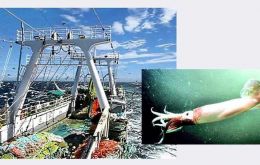
The second Loligo squid season in the Falkland Islands fishery has been brought to an early close, finishing around a week sooner than expected. The daily monitoring of the catch showed the biomass had reached the minimum threshold required to safeguard the long-term sustainability of the stock.
-
Thursday, August 7th 2025 - 12:14 UTC
Falklands, Loligo season
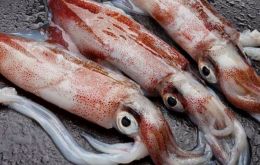
The Falkland Islands Government’s (FIG) Fisheries Department yesterday issued a 48-hour notice of closure for the winter loligo fishery season.
-
Sunday, July 20th 2025 - 07:23 UTC
Galician Fleet Sets Sail for Falklands with Cautious Optimism Amid Loligo Squid Uncertainty
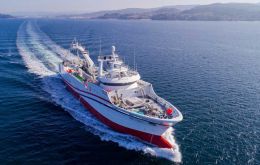
Despite sharp declines in recent seasons and unanswered questions about stock migration, nearly 1,000 crew members embark on a crucial four-month campaign vital to the region's economy.
-
Saturday, May 3rd 2025 - 08:46 UTC
Falklands’ first Loligo season, despite earlier closure, was ‘relatively good’ FIFCA and Spanish associates agree

The Falkland Islands Fishing Companies Association (FIFCA) and its Spanish associates said that following the early closure of the first Loligo season, (March first/27 April) given the scientific reports, and with total catches close to 38,000 tons, it was a relatively good season.
-
Tuesday, April 29th 2025 - 07:43 UTC
Falklands, the size and maturity of Loligo squid forces closure of fishing season

The Falkland Islands Government Fisheries Department has confirmed that the Loligo fishing season has closed. The season closed on Sunday 27 April. Following issues with the second season in the last two years, the first season was closely monitored, particularly with regards to size and maturity of squid being caught.
-
Thursday, April 25th 2024 - 05:32 UTC
Argentines satisfied with this year's squid catches, “higher than expected”
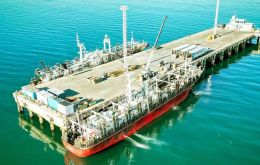
Landings of squid in Puerto Madryn, Chubut province, Argentine Patagonia are higher than last year's and can be considered a “great success for fisheries and our province,” according to Diego Pérez, manager of the Madryn port.
-
Thursday, August 31st 2023 - 13:38 UTC
Consistent decline of biomass forces Falklands early closure of Loligo season

The Falkland Islands Fisheries Department (FIFD) conducted a pre-season survey for the winter Loligo ‘X’ licence season, working in close partnership with local companies. The survey results showed the lowest winter pre-season survey biomass estimates since 2008, a total of 19,859 tons.
-
Thursday, August 19th 2021 - 06:03 UTC
Spanish trawlers believe Falklands is heading for a record catch of Loligo
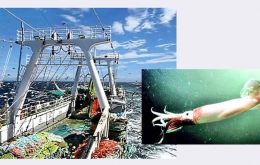
The fleet of trawlers from Vigo. Spain operating in the Falkland Islands waters are most enthusiastic about the current second squid season and believe Loligo landings already totaling 72,200 tons according to records from Falklands' Natural Resources Department could anticipate, if catch rates continue, a record similar to that of the best year back in 1995, with 98,409 tons.
-
Saturday, June 19th 2021 - 12:15 UTC
Brussels drops tariffs for 75,000 tonnes of Falklands squid
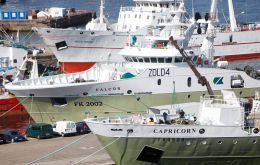
The European Commission has reached an agreement to allow 75,000 tonnes of Falklands loligo to be imported tariff-free into the European Union, according to reports in Galician daily Faro de Vigo.
-
Tuesday, May 11th 2021 - 01:49 UTC
Vigo anticipates a 50,000 tons Falklands' Loligo catch but it will have to pay tariff to access the EU
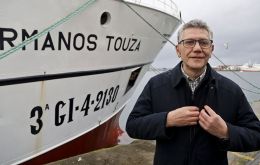
The Falkland Islands' fishing industry partners/associates in Vigo are faced with good and bad news. The good news is that the Loligo catch is expected to reach 50,000 tons, while the bad news is that the exceptional squid harvest expected to begin arriving next week in Vigo will be, for the first time facing a 6% tariff when landed in Spain, according to the Galicia media.
